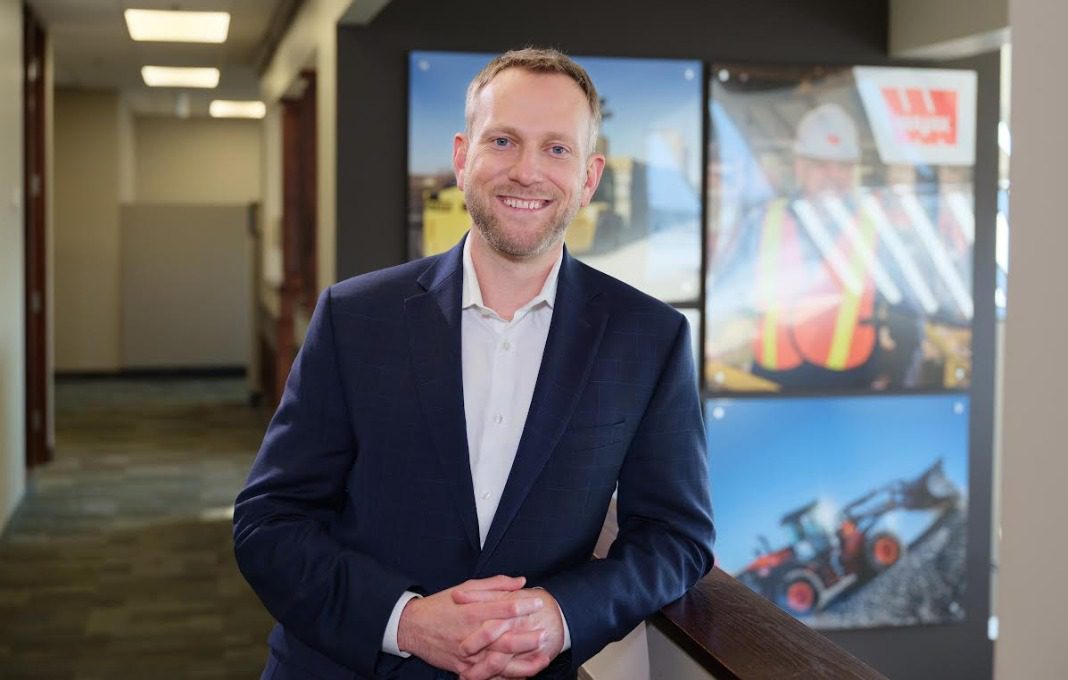How To Leverage A People-Oriented Culture


Sure, people spend time in lots of places besides home, including bars, churches, ballgames and Starbucks, and all of those places influence them. But the way Iggy Domagalski sees it, employers have the opportunity to have greater impact than any of those venues and institutions simply by dint of how much time people typically spend at work.
“Business can be the most powerful force for good in the world,” says Domagalski, CEO of Wajax, a $2-billion industrial manufacturer, distributor and service supplier based in Calgary, Alberta. “You think of other institutions, like church, which have got people for maybe two hours a week yet have a profound impact on people. Friends you have for a few hours a week, and of course family can have a great impact on you.
“But business has you as a captive audience for maybe 40 hours a week,” Domagalski tells Chief Executive. “So we can send people home happy and fulfilled, with positive energy to take back to their families and communities. Or it can be the opposite, and send people home fearful, angry, resentful, scared and anxious.”
For Domagalski, nothing is more important as a business leader than doing the latter, and since he became CEO three years ago, he has taken a number of concrete steps to solidify a “people-first” culture at Wajax that will outlast his tenure.
So far, he’s doing something right: Revenues for publicly held Wajax have increased by about 30 percent over the last two years, and profits have boomed by 60 percent. Compound annual growth in revenues over the last eight years has been about 8 percent, he says, and in profits more than 20 percent.
Wajax is one of Canada’s longest-standing and most diversified providers of industrial products and services, with more than 120 branches and more than 3,000 employees providing sales, parts and services to a broad range of more than 32,000 customers in verticals including construction, forestry, mining, manufacturing, transportation and energy. Major customers include Hitachi, the Japanese manufacturing giant, for whom Wajax has become the primary heavy-equipment distributor in Canada.
Domagalski headed Tundra Process Solutions, a much smaller company, when Wajax bought the outfit in 2021. “I felt fortunate that I was inheriting a pretty well-built ship,” he says.
Among other gambits, Domagalski has been leaning into the future by helping customers embrace sustainability and even electrification in ways that don’t require wholesale turnover of their approach to energy but still can make significant headway environmentally.
“We operate in a lot of primary-resource industries, and they have some pretty significant headwinds in terms of their impact on the environment,” he says. “We’re pretty passionate about helping them meet their goals in that.”
So, for instance, Wajax prioritizes “offering the most energy-efficient and least-emitting products,” with the understanding that “some equipment will always be run on diesel,” which is among the dirtiest fuels. “We do service and tuning to cut emissions, or help customers switch out of propane to hydrogen and electric solutions, and electric transmissions for some of our transportation customers.”
Another example of this approach is a Wajax unit that sells variable-frequency drives to attach to motors that “do 70 percent to 80 percent of the work in factories,” Domagalski says. “It’s like a dimmer switch, and they save incredible amounts of energy” because motors don’t have to spin at full speed continuously. “It makes customers more efficient and helps them, ultimately, use less electricity [or] natural gas.”
Another strategic approach Domagalski has taken as CEO is to re-focus the company only on growth opportunities that come squarely into its wheelhouse: being “the most trusted supplier of process equipment in western Canada.” That emphasis includes not “chasing the shiny-bumper trap [and] realizing there are only a few things we should be focused on.
“Every quarterly management meeting, we would say, ‘We have all these brilliant ideas,’ and the team would roll their eyes about a strategy shift when we had just been getting going on another one. We realized just how destructive that [had been] for our company.”
Focusing on people—its employees and customers—also has been crucial for Wajax’s growth. Domagalski created a new position of chief people officer, for instance. Internal Net Promoter scores have been improving significantly, he says.
“Most of the company is customer-facing,” Domagalski says, “so people are our most important asset. We’ve been investing hard and continuing to build a people-first company.”
Here are some ways Domagalski goes about sustaining a successfully people-focused company:
Key on core values. When he joined Wajax three years ago, Domagalski says, he discovered that the company never had documented its core values. “So we went on a journey to define our purpose and values, and we brought them up from the front line,” he says.
“What did our people think the company was about? We determined it was about committing to the safety and wellbeing of people, building lasting relationships and continuously improving. Most of these values flow back to people.”
Set strategy accordingly. “We learned over time how powerful it is to laser-focus the entire company on something and block out everything else,” Domagalski says.
“The way we did that is through our set of core values. It helps you say ‘no’ a lot, which is something CEOs should be doing a lot. It helps to have a compelling vision for what you want your company to be.”
Facilitate relationships. For any company where providing services is essential, like Wajax, customer relationships are paramount. That’s where Wajax’s people-first approach helps a lot.
“When people believe a company cares about them, they want to take care of customers better and they’ll go above and beyond,” Domagalski says. “We hear stories about that every day here. One of our people will come in on a Saturday and pick up a part and run it to the airport for a ‘hotshot’ delivery, or technicians go out in the middle of the night all the time and take care of customers.
“It’s really having the desire to go above and beyond to help our customers, and showing our customers we care, too.”


0

1:00 - 5:00 pm
Over 70% of Executives Surveyed Agree: Many Strategic Planning Efforts Lack Systematic Approach Tips for Enhancing Your Strategic Planning Process
Executives expressed frustration with their current strategic planning process. Issues include:
Steve Rutan and Denise Harrison have put together an afternoon workshop that will provide the tools you need to address these concerns. They have worked with hundreds of executives to develop a systematic approach that will enable your team to make better decisions during strategic planning. Steve and Denise will walk you through exercises for prioritizing your lists and steps that will reset and reinvigorate your process. This will be a hands-on workshop that will enable you to think about your business as you use the tools that are being presented. If you are ready for a Strategic Planning tune-up, select this workshop in your registration form. The additional fee of $695 will be added to your total.

2:00 - 5:00 pm
Female leaders face the same issues all leaders do, but they often face additional challenges too. In this peer session, we will facilitate a discussion of best practices and how to overcome common barriers to help women leaders be more effective within and outside their organizations.
Limited space available.

10:30 - 5:00 pm
General’s Retreat at Hermitage Golf Course
Sponsored by UBS
General’s Retreat, built in 1986 with architect Gary Roger Baird, has been voted the “Best Golf Course in Nashville” and is a “must play” when visiting the Nashville, Tennessee area. With the beautiful setting along the Cumberland River, golfers of all capabilities will thoroughly enjoy the golf, scenery and hospitality.
The golf outing fee includes transportation to and from the hotel, greens/cart fees, use of practice facilities, and boxed lunch. The bus will leave the hotel at 10:30 am for a noon shotgun start and return to the hotel after the cocktail reception following the completion of the round.